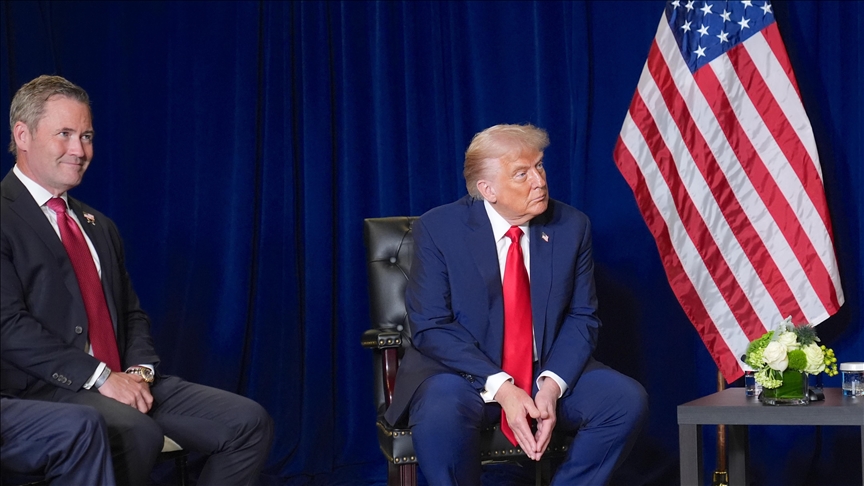Trump says Ukraine 'doing a very good job' on the battlefield against Russia
'Ukraine is doing a very good job of stopping this very large army. It's pretty amazing,' US president says
 : US President Donald Trump meets with United Nations Secretary-General Antonio Guterres after delivering his speech at the 80th United Nations General Assembly at the UN Headquarters in New York, United States, on September 23, 2025.
: US President Donald Trump meets with United Nations Secretary-General Antonio Guterres after delivering his speech at the 80th United Nations General Assembly at the UN Headquarters in New York, United States, on September 23, 2025.
WASHINGTON
US President Donald Trump gave an unusually upbeat assessment of Ukraine's battlefield performance Tuesday, saying as he met with President Volodymyr Zelenskyy that Kyiv's forces have far surpassed expectations.
"Ukraine is doing a very good job of stopping this very large army. It's pretty amazing. You know, this is a war that should have ended in three days, four days," Trump said on the sidelines of the UN General Assembly in New York, reflecting conventional wisdom from the start of the war in February 2022.
"People said it was going to be very quick, and you got to hand it to the Ukrainian soldiers, and everybody involved, it's still going on. And that's not a good thing for Russia. This was supposed to be quick. And so Russia doesn't look very distinguished, having taken three-and-a-half years of very hard fighting, and it looks like it's not going to end for a long time," he added.
For his part, Zelenskyy thanked his US counterpart for his personal effort to try and end the ongoing war, saying he would brief Trump on the situation in the battlefield.
"We have good news," Zelenskyy said, claiming that Ukrainian troops retook control of 360 square kilometers (139 square miles) in the country, as well as encircled 1,000 Russian soldiers and that they want to do an exchange.
He further reaffirmed Ukraine's demand for further pressure and sanctions on Moscow.
Asked about recent unidentified drone sightings that caused two temporary airport closures in Denmark, Trump said he would have no response "until I find out exactly what happened."
"They don't know what happened, but we're going to find out very soon," he said.
The drone sightings followed a series of recent airspace violations in Europe.
On Sept. 10, a suspected Russian drone strike hit Polish territory, prompting NATO to deploy fighter jets. Similar accusations were subsequently made by Romania and Estonia, and denied by Russia.








